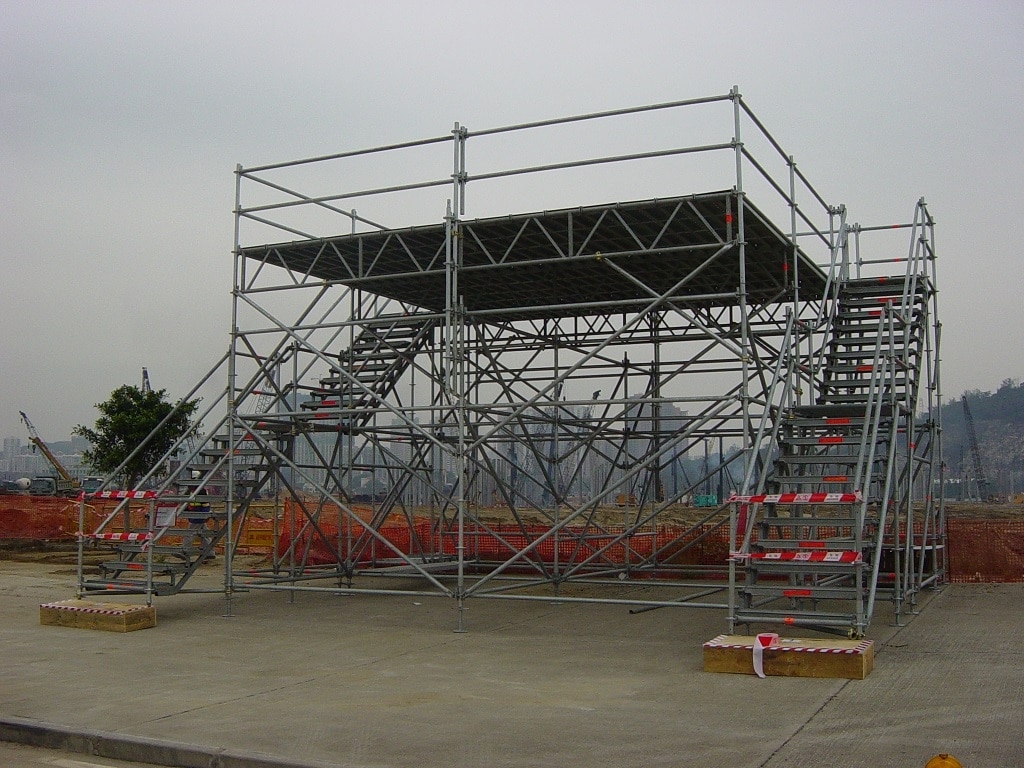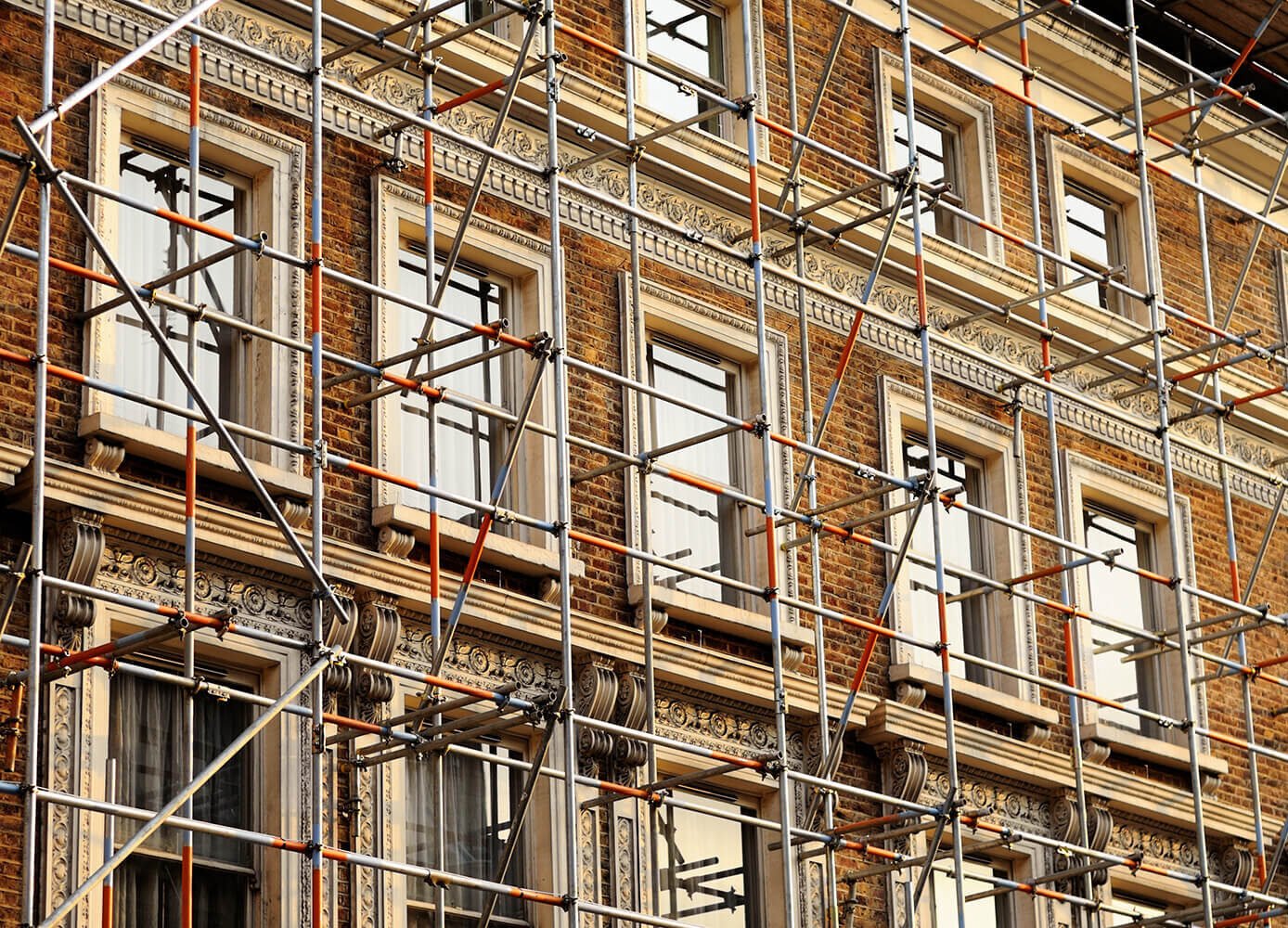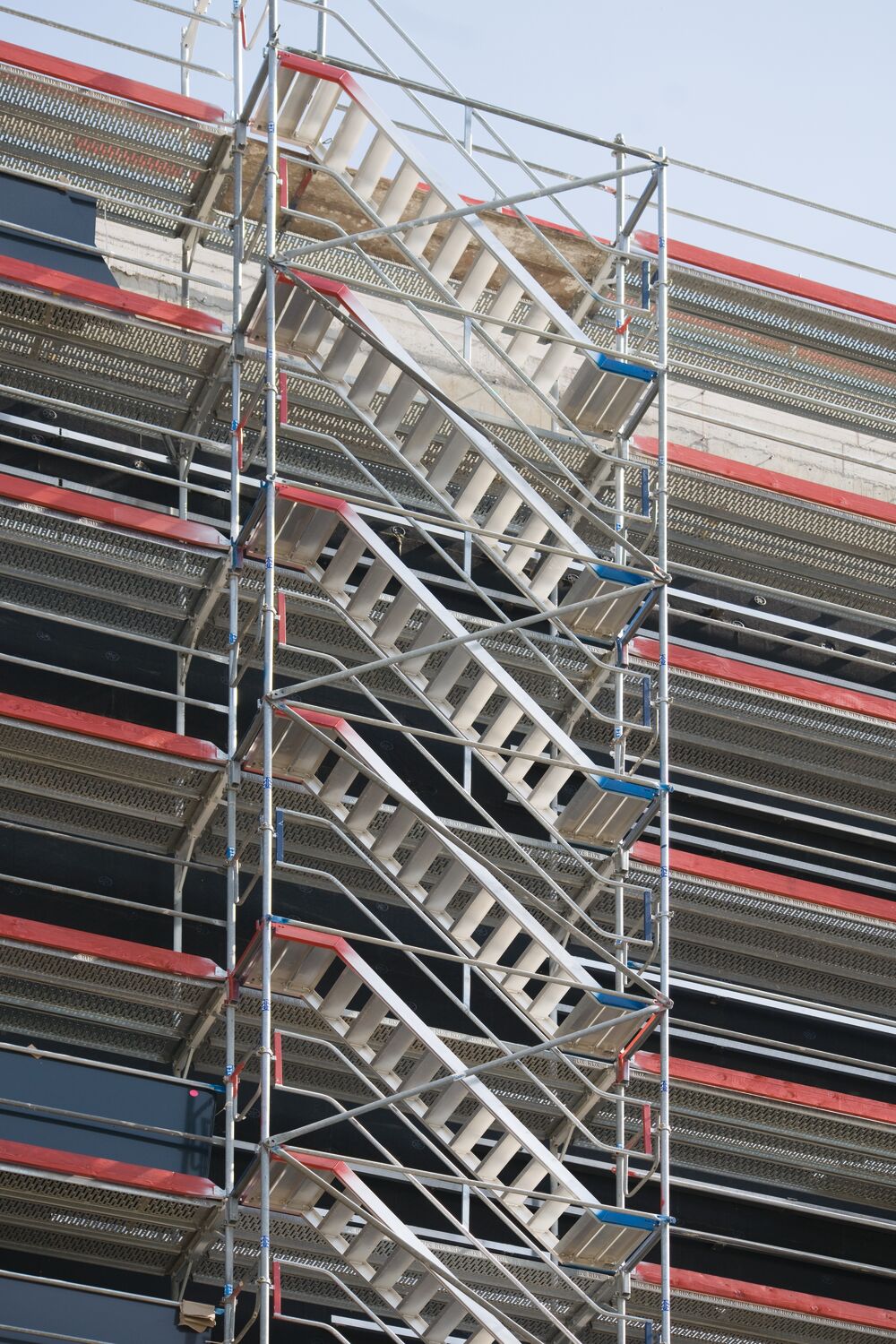Local Scaffolding Company Providing Reliable Services Throughout Surrey
Local Scaffolding Company Providing Reliable Services Throughout Surrey
Blog Article
Discovering the Different Types of Scaffolding Utilized in Building And Construction Jobs
The construction sector counts greatly on numerous types of scaffolding to fulfill specific job requirements, each offering distinctive advantages and applications. Traditional frame scaffolding provides a sturdy foundation for basic jobs, while suspended scaffolding is crucial for job on skyscraper structures.

Conventional Structure Scaffolding
Conventional framework scaffolding is just one of one of the most extensively used techniques in the construction sector because of its effectiveness and adaptability. This system includes upright and straight structures that are assembled to develop a secure system for products and workers. The major components include vertical posts, horizontal ledgers, and angled dental braces, which together provide a solid framework that can support considerable loads.
One of the essential advantages of standard structure scaffolding is its versatility to various building and construction projects, ranging from household structures to big business structures. The modular design permits very easy assembly and disassembly, making it efficient for both short-term and lasting tasks. In addition, the system can be customized in height and width, fitting different structure designs and website problems.
Safety is paramount in scaffolding applications, and standard frame systems are equipped with guardrails and toe boards to avoid drops and make sure worker protection. Regular examinations and adherence to security guidelines are crucial in keeping the integrity of the scaffold (Scaffolding). In general, traditional structure scaffolding remains an essential option in the building and construction market, giving a trusted system for labor and boosting general project effectiveness

Suspended Scaffolding
Suspended scaffolding uses an one-of-a-kind service for construction tasks that need access to raised surface areas, specifically in situations where conventional structure scaffolding might be impractical. This kind of scaffolding is typically put on hold from the roofing system or upper levels of a framework, making use of a system of ropes, systems, and pulleys to produce a working room that can be gotten used to different heights.
One of the primary advantages of put on hold scaffolding is its versatility. It can be conveniently repositioned or lowered to accommodate adjustments in construction requirements, making it excellent for jobs such as home window installation, façade work, and maintenance on skyscrapers. In addition, the marginal impact of put on hold scaffolding permits much better usage of ground area in city atmospheres, where room is frequently limited.
Safety is an important consideration in making use of put on hold scaffolding. Appropriate rigging and securing systems need to be used to guarantee stability and stop accidents. Operators should likewise be educated in the secure usage of this tools. Generally, suspended scaffolding offers a reliable and efficient remedy for accessing hard-to-reach locations in numerous building situations, enhancing both productivity and safety on website.
System Scaffolding
System scaffolding, often concerned as a contemporary option in the scaffolding market, is composed of pre-engineered parts that can be promptly assembled and adapted for numerous building projects. Scaffolding. This type of scaffolding is defined by its modular layout, which enables for flexibility and performance on job sites, accommodating architectural needs and different elevations
Generally made from high-strength steel or light weight aluminum, system scaffolding supplies enhanced sturdiness and security. The elements include upright messages, horizontal ledgers, and angled braces, which interconnect firmly, guaranteeing a durable structure. The design commonly includes standard installations, streamlining setting up and disassembly processes, therefore decreasing labor time and costs.

Rolling Scaffolding
Moving scaffolding is a versatile option to conventional set scaffolding, developed for wheelchair and simplicity of usage on building and construction sites. This kind of scaffolding includes a system supported by frameworks with wheels, allowing employees to quickly relocate it as required. The flexibility feature significantly boosts performance, as it lessens downtime linked with assembling and dismantling fixed scaffolding.
Commonly constructed from lightweight products such as light you can try these out weight aluminum scaffolding questions teaching or steel, rolling scaffolding uses a sturdy yet portable option for jobs needing frequent repositioning - Scaffolding. It is especially beneficial in tasks such as paint, drywall installation, and electrical work, where accessibility to numerous heights and areas is essential
Security is vital in rolling scaffolding design, with attributes such as securing wheels to avoid unintended motion when in operation, and guardrails to safeguard employees from drops. Furthermore, many versions are flexible in elevation, fitting various task demands.
Cantilever Scaffolding

The layout of cantilever scaffolding normally includes making use of arms or braces anchored to a building or structure, enabling the platform to prolong outside safely. Safety and security is paramount; hence, these scaffolds should be engineered to stand up to ecological problems and numerous tons. Routine assessment and maintenance are important to ensure architectural integrity and worker security.
Cantilever scaffolding is favored for its adaptability and reliable usage of room, making it a prominent choice in city environments where area constraints prevail. It promotes much easier access to high elevations, read more ultimately adding to the general efficiency of building and construction tasks. Just like all scaffolding kinds, appropriate training and adherence to safety standards are crucial for employees making use of cantilever scaffolding.
Conclusion
Traditional structure scaffolding provides stability, while suspended scaffolding provides adaptability for elevated jobs. System scaffolding helps with quick setting up, and rolling scaffolding boosts wheelchair for differing work settings.
Traditional frame scaffolding gives a durable foundation for basic jobs, while suspended scaffolding is crucial for work on high-rise frameworks.Moving scaffolding is a versatile choice to standard set scaffolding, developed for movement and ease of usage on building websites. As with all scaffolding types, appropriate training and adherence to security criteria are important for workers making use of cantilever scaffolding.
Conventional frame scaffolding gives security, while put on hold scaffolding uses flexibility for raised tasks. System scaffolding assists in fast setting up, and rolling scaffolding boosts flexibility for differing job environments.
Report this page